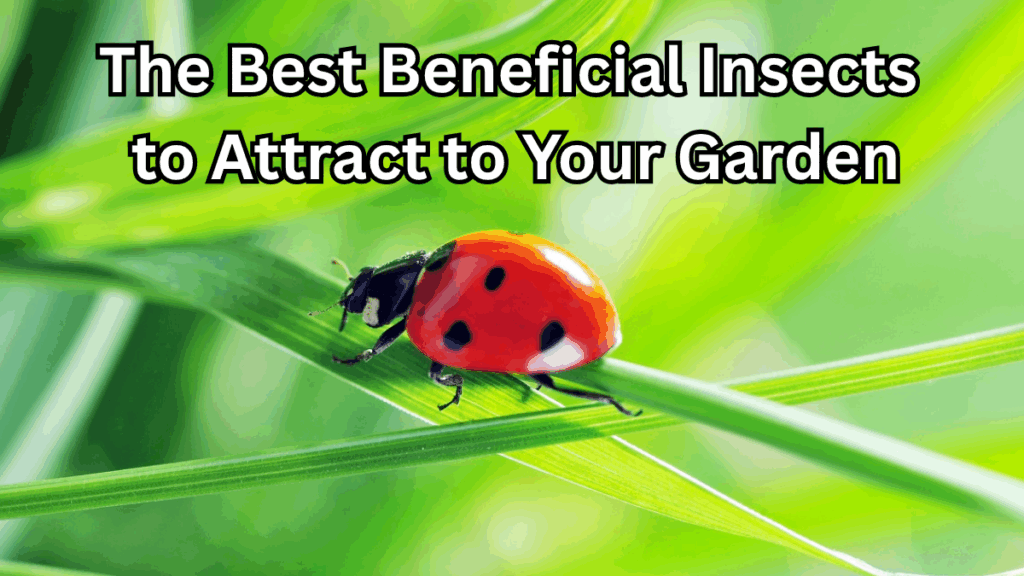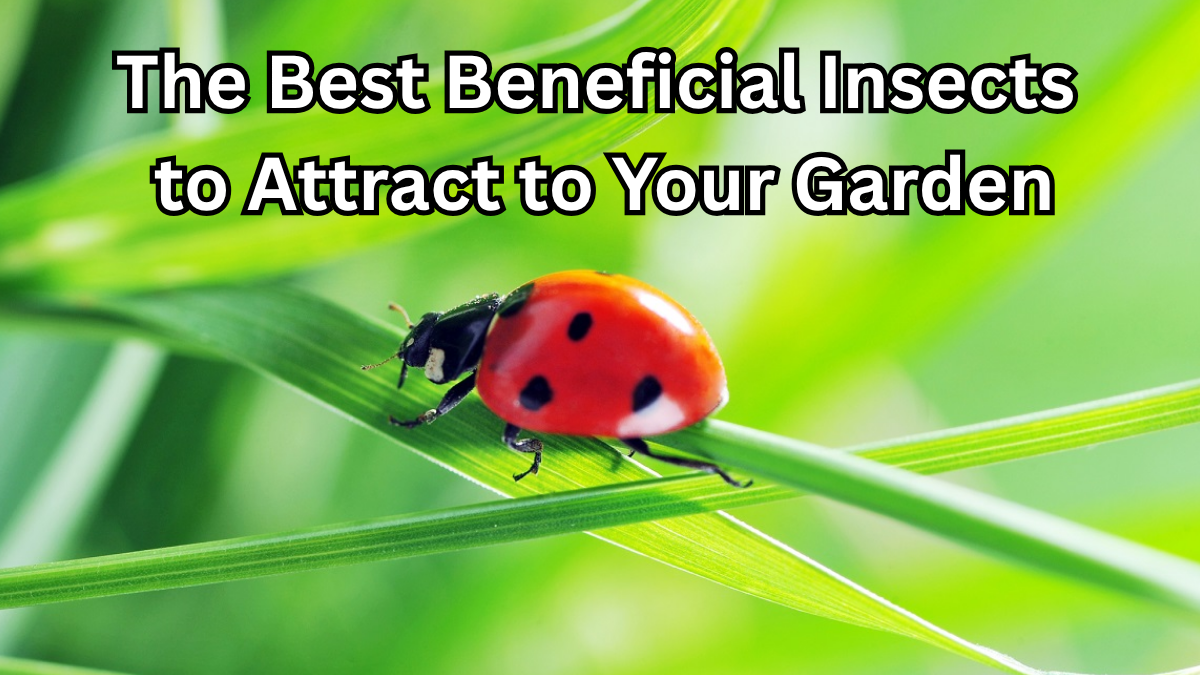Creating a thriving garden isn’t just about planting flowers and vegetables; it’s also about encouraging a balanced ecosystem. One of the best ways to achieve this is by attracting beneficial insects. These garden allies help control pests naturally, pollinate plants, and contribute to a healthier garden overall.

Why You Should Welcome Beneficial Insects
Beneficial insects are nature’s own pest control experts. They play a crucial role in reducing harmful pests without the need for chemical pesticides. Here’s why you should encourage them in your garden:
-
Natural pest control: They prey on common garden pests like aphids, mites, and caterpillars.
-
Pollination support: Some, like bees and hoverflies, improve fruit and vegetable yields.
-
Eco-friendly gardening: Reduces reliance on chemical pesticides, promoting a sustainable garden.
-
Biodiversity boost: Attracting beneficial insects improves the overall health of your garden ecosystem.
Top Beneficial Insects for Your Garden
Here’s a breakdown of the most helpful insects you can attract to your garden and their benefits:
| Insect Name | Role in Garden | What They Eat | How to Attract Them |
|---|---|---|---|
| Ladybugs | Predator | Aphids, mealybugs | Plant dill, fennel, and marigold |
| Lacewings | Predator | Aphids, caterpillars | Provide flowering plants like yarrow |
| Hoverflies | Pollinator & Predator | Aphids (larvae), nectar | Grow alyssum, daisies, and herbs |
| Praying Mantis | Predator | Various garden pests | Offer tall plants for hiding |
| Ground Beetles | Predator | Slugs, snails, eggs | Mulch and rocks for shelter |
| Bees | Pollinator | Nectar and pollen | Plant flowering herbs and wildflowers |
| Parasitic Wasps | Predator | Caterpillars, aphids | Avoid pesticide use |
How to Attract Beneficial Insects to Your Garden
To make your garden a haven for these garden allies, you need to create a welcoming environment. Here are some tips:
-
Plant diversity: Include a mix of flowering plants, herbs, and vegetables.
-
Provide water sources: Small dishes or shallow ponds help insects stay hydrated.
-
Avoid chemical pesticides: They can harm beneficial insects along with pests.
-
Create shelter: Mulch, rocks, and small plant clusters offer hiding places.
-
Plant native flowers: Native plants attract local beneficial insects naturally.
Quick Tips for Maintaining a Healthy Beneficial Insect Population
-
Rotate crops to avoid pest buildup.
-
Introduce flowering plants that bloom throughout the season.
-
Companion planting helps attract both pollinators and predators.
-
Maintain organic matter in your soil for ground beetles and other insects.
FAQs
1. What are the most effective beneficial insects for natural pest control?
Ladybugs, lacewings, and parasitic wasps are highly effective at controlling aphids, caterpillars, and other harmful pests.
2. Can beneficial insects harm my plants?
Most beneficial insects only target pests. Predatory insects like ladybugs and ground beetles rarely harm plants.
3. How long does it take for beneficial insects to establish in my garden?
With proper habitat and food sources, you can start seeing beneficial insects within a few weeks.
4. Are there plants that attract multiple types of beneficial insects?
Yes! Herbs like dill, fennel, and cilantro, as well as flowers like marigolds and yarrow, attract a wide variety of garden allies.
Click here to learn more
